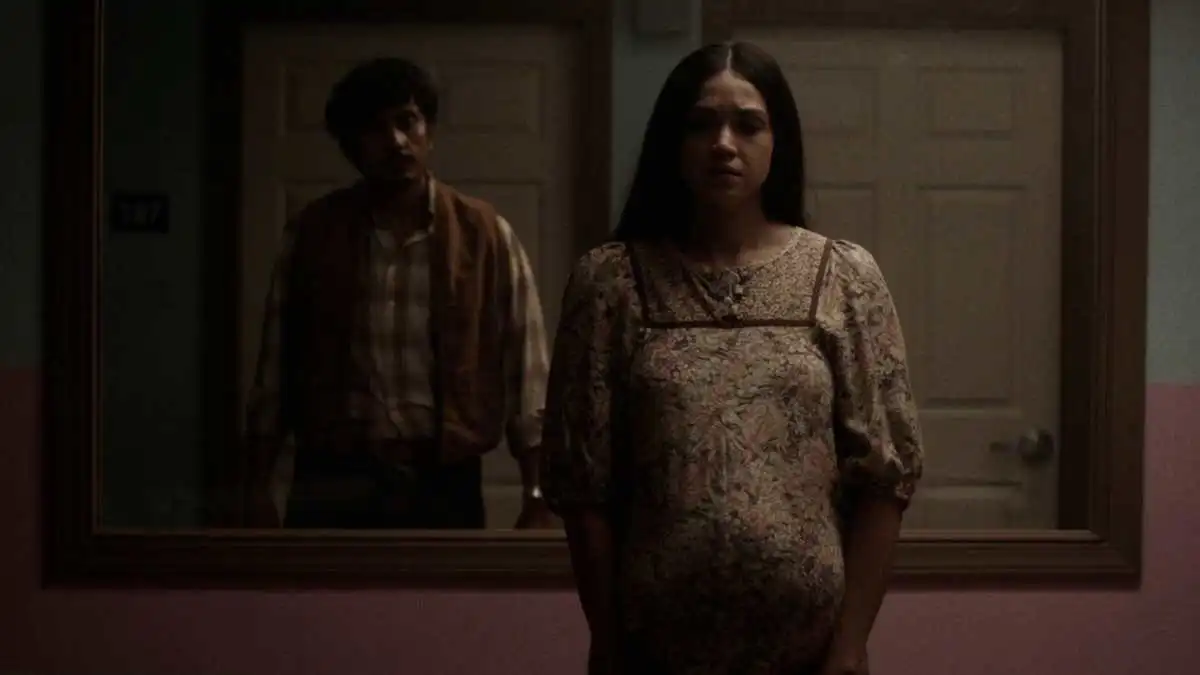Back when Blumhouse Productions was the Little Indie Horror Studio That Could, their recipe for success was simple: release low-budget films that connect with audiences and consistently rake in absurd sums of money. But the siren song of big streamers like Hulu and Amazon has Blumhouse’s recent output feeling more like free samples at the food court–they’re just giving this stuff away.
The occasional Blumhouse release can still surprise, but a vast majority of their recent films feel tailor-made for the bargain bin. The most frustrating thing about this isn’t necessarily the influx of bad movies, but the untapped potential on display in almost all of them. “Madres,” one of this October’s “Welcome to the Blumhouse” premieres, is a particularly disheartening example of good intentions gone awry.
The film, directed by Ryan Zaragoza, follows migrant worker Beto (Tenoch Huerta) and his wife Diana (Ariana Guerra), a young Mexican-American couple who recently moved to a small, California farming community in the 1970s. Soon after their arrival, Diana–a Los Angeles-born journalist–begins exhibiting a series of troubling symptoms that may be related to pesticides used on the nearby farmland. Before long, Diana learns she’s not the only pregnant woman in town to experience this peculiar illness, and launches an investigation to uncover the real source of her symptoms before it’s too late.

Still from “Madres” (2021). Courtesy of Amazon Studios.
Although the story itself is a fictionalized account, its foundation is based on true stories of American hospitals that were accused of sterilizing Hispanic, Native American, and Black women without their knowledge. Zaragoza’s film, in particular, was inspired by a group of Mexican women who filed a class-action lawsuit in 1975, but stories of racially-motivated sterilization in the U.S. are, tragically, not at all uncommon. The fact that millions of Americans are blissfully unaware of this makes a film like “Madres” all the more relevant. It’s a shame, then, that “Madres” only succeeds in educating audiences about the existence of these atrocities.

Still from “Madres” (2021). Courtesy of Amazon Studios.
As a horror film, “Madres” rarely meets even the most basic requirements. It’s beautifully shot and clearly has a lot on its mind, but this politically-charged genre flick just can’t seem to muster up a halfway decent scare. The bump-in-the-night sequences are a chore to get through, and anytime “Madres” doesn’t have something insightful to say about the Mexican-American experience or the horrors of American immigration policy, it’s really not worth watching at all. Thankfully, Zaragoza doesn’t allow the film’s socially-conscious threads to fall by the wayside for too long, but it’s still not enough to compensate for the ineffective genre thrills. It’s ultimately a good thing that “Madres” exists, but its complete inability to successfully integrate elements of the horror genre does beg the question: why couldn’t this have been a documentary?
Grade: C-









